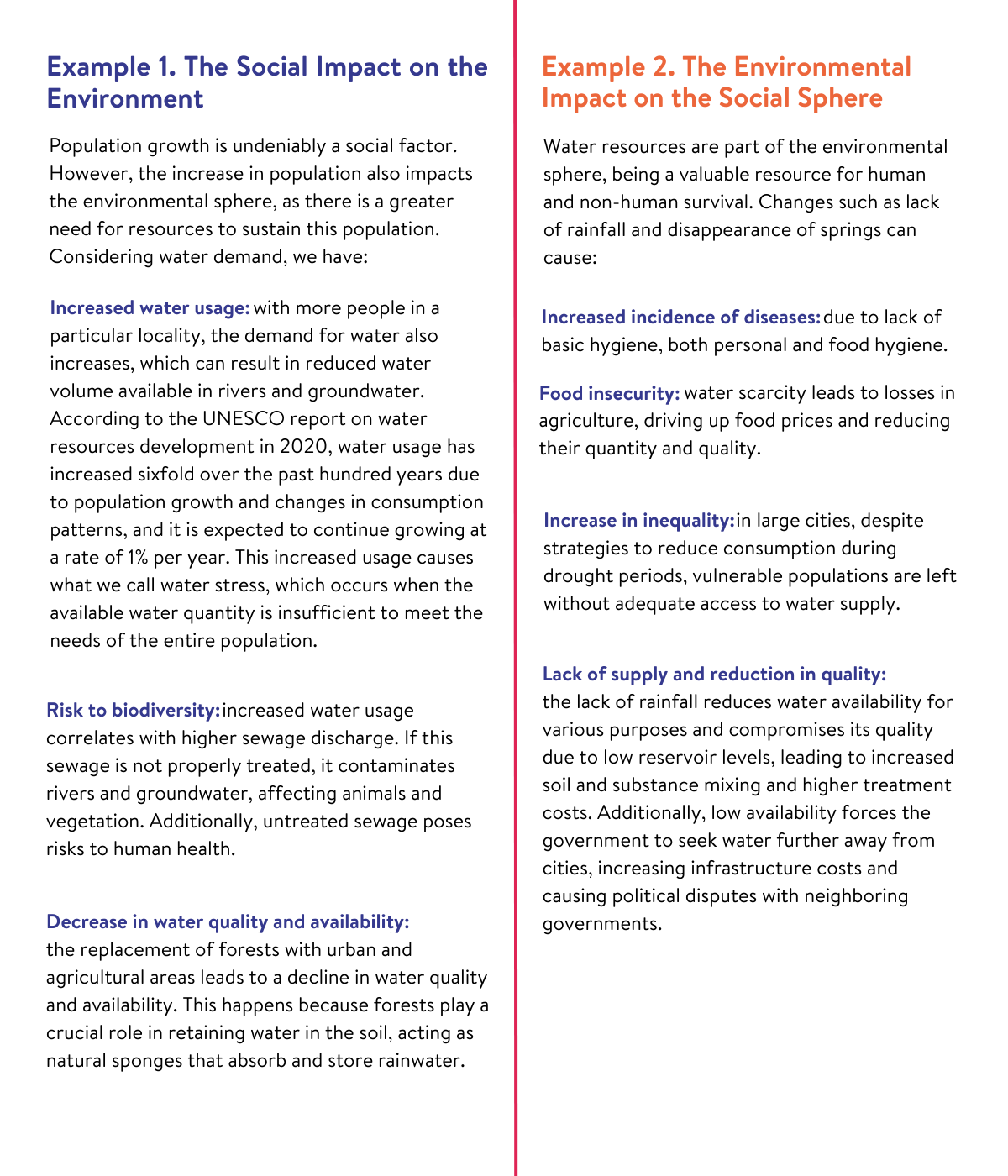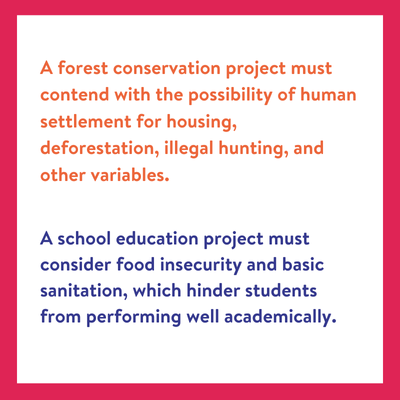Since aspects related to socioenvironmental impact and risk assessment started to integrate into the business strategy of an increasing number of companies, we have seen the market turn upside down and the subject gain strength and scale. It’s evident that the idea of sustainability and corporate social responsibility is not new, but the market logic has certainly changed since it was suggested that resources allocated to socioenvironmental projects of public interest should no longer be seen as expenses, but rather as investments that bring short, medium, and long-term returns. This is what we call private social investment – or strategic philanthropy, integrated into an ESG agenda.
We understand that private social investment practices have high penetration and can substantially enhance a company’s socioenvironmental actions. In other words, when done well, social investment can help unlock various other aspects of a corporate sustainability agenda. Empirically, the Third Sector has been working for years to demonstrate the impact that private social investment can have on an organization’s ESG metrics, especially in the social field.
To prove this hypothesis, IDIS – Institute for the Development of Social Investment undertook to analyze the correlation between private social investment and the scores of the brazilian stock exchange’s Corporate Sustainability Index (in portuguese, abbreviated as ISE B3). Established in 2005, it is currently the largest sustainability index in the country and was the fourth to be created globally, undergoing periodic revisions and analyses according to societal and market demands.
The companies included in the Index are chosen annually based on a ‘best-in-class’ process — a term used to describe practices or processes considered the best compared to market standards. The Index questionnaire is based on SASB Standards and maintains consistency with the Global Reporting Initiative (GRI), one of the world’s leading ESG measurement standards.
The survey analyzed the 2022-2024 triennium of companies included in the index, and during the evaluation period, it was very rewarding to identify that the practice of private social investment consistently ranked among the top ten topics most correlated with the ISE B3 score. In other words, companies that perform well in strategic philanthropy tend to excel in overall corporate sustainability.
It is also interesting to note that private social investment practices are aligned with aspects such as ‘foundations of corporate sustainability management’, ‘business ethics’, and ‘trends and purpose’. The alignment with topics that naturally have greater cross-sectional relevance indicates the tactical nature of private social investment in formulating and implementing integrated corporate sustainability strategies.
A private social investment strategy aligned with an ESG strategy helps to materialize the organization’s purpose for its stakeholders, generating tangible results for both the company and society. A company’s investment in socioenvironmental projects can be a good way to engage different stakeholders and initiate collective agendas with the government and organized civil society, promoting benefits for both society and businesses. Furthermore, it helps companies clearly and robustly demonstrate their socioenvironmental commitments, signaling to the market and consumers a real commitment to different causes.
Despite seeming logical, this alignment is not an easy task. In addition to connecting actions with business challenges and brand purpose, strategic action must consider material business aspects and a thorough mapping of stakeholders and different ways to engage them. Moreover, socioenvironmental actions should complement efforts undertaken by the Third Sector, promoting exchanges that enrich the performance of all actors. Study data shows that this is a relevant task that should be given importance by the private sector, as it is highly correlated with comprehensive corporate sustainability management.
Other findings
Regarding the scope of this study and the adoption of private social investment practices, some results stand out. For example, the most adopted actions in 2024, representing 93% of the 85 companies that responded throughout the triennium, were:
– Considering collective agendas, such as SDGs, as a general reference for defining social investments;
– Working in partnership with the community and other stakeholders in the formulation or execution;
– Valuing the leadership of local actors and strengthening civil society;
– Contributing to the participatory construction of public policies and/or collective sustainable development agendas.
Additionally, it was identified that the performance in private social investment topics is slightly better, both in average and median, in companies that operate, where applicable, through philanthropic vehicles, such as a foundation or corporate institute with its own structure. There was no statistically significant difference in total ISE B3 score performance between companies operating via philanthropic vehicles and those that do not. We can establish that scoring well in corporate sustainability is possible even in the absence of specific philanthropic vehicles. However, these vehicles remain important structures (alongside endowments, another modality capable of fostering co-investment) that mark firm corporate commitments in the face of numerous social dilemmas and issues. They will be even more effective if they can connect their areas of focus to the business, constituting important elements to boost the growth of a broader and deeper ESG agenda linked to purpose that permeates the entire organization.
In topics involving consultation with stakeholders to define investment priorities and maintaining open channels with the community, the difference between companies that claimed not to adopt such practices and those that do was more than 10 points. Companies that emphasize the leadership of local civil society actors in their private social investment actions demonstrate considerably superior performance compared to those that do not consider this aspect. Local dialogues, consistent positive social impact aligned with the company, open channels, and transparency in private social investment move the needle and demand new perspectives from companies. However, companies need to further advance this agenda, seeking ways to engage with local actors, working in partnership with the Third Sector in a complementary manner. Private social investment plays an important role: by building relationships focused on the community and surroundings, in line with internal company guidelines and demands, socio-environmental investment strategies are more assertive, targeted, and promote improvements in territories.
Another discovery is related to the practice of impact assessment by companies. Companies that assess the results of initiatives supported through private social investment have a higher performance in the ISE B3 and also showed a relatively high increase in performance between 2022 and 2024. In practical terms, systematic collection of impact indicators allows for reflective and strategic examination of the efficiency of a given social intervention, thereby enabling periodic review and improvement aimed at maximizing the desired and generated social benefits. Often, social projects end up generating unintended positive impacts that would go unnoticed without an evaluation that takes into account, for example, the beneficiaries’ perception of the changes in their lives.
In summary, we empirically know that by connecting the concept and practices of private social investment with the organization’s purpose and institutional values, considering the economic bias of the business and the perspective of key stakeholders regarding the socio-environmental value to be created by the company, it is possible to enhance the organization’s capacity to generate positive impact for society and real value for the business. This relationship is now quantitatively proven, considering an extremely relevant sample of Brazilian companies.
IDIS maintains the view that to catalyze lasting social transformation, Private Social Investment must be accompanied by a robust strategic planning, grounded in specific data and indicators, implemented with precision, and accompanied by monitoring and evaluation of its results and impact.
Access the full study, available only in portuguese here.




